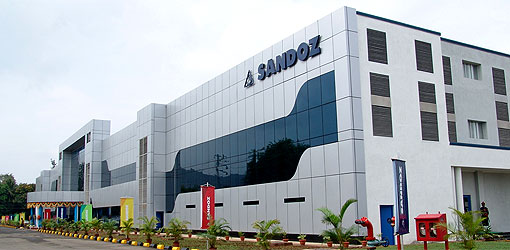Sandoz joins medical cannabis drive with Tilray deal

Novartis’ Sandoz subsidiary has taken its first steps into the emerging market for medical cannabis products, signing a global supply deal with Canadian producer Tilray.
Tilray was the first cannabis company to get a public listing on the Nasdaq early this year, and in the last months has seen its shares rocket from $17 at debut to more than $77, with news of the Sandoz deal pushing the stock up another 17% yesterday.
Much of the gains have come on the back of Canada’s legalisation of the sale of dried flower or cannabis oils through government-licensed stores or licensed producers, with legislation of edibles also due next year, as well as moves in the US by the Trump administration to look into reclassification of the drug.
The US Farm Bill is also providing an opportunity for the company to enter the hemp-derived CBD industry, estimated to be potentially worth $22bn, and earlier this year the Drug Enforcement Administration signed off on Tilray’s plan to import CBD from Canada to the US for medical research.
The Vancouver Island-based company is currently licenced to produce dried cannabis and cannabis extracts, including both bottled oil and capsules, for medical purposes in Canada, but the link with Sandoz gives it access to a global supply chain and the credibility of association with an established pharma company. It is already supplying products in Canada, Australia, New Zealand, Germany, Portugal and Latin America.
Under the terms of the framework deal, Sandoz will support the sale of Tilray’s “non-smokable and non-combustible” medical cannabis products, and the two companies may co-brand some product lines and develop “new innovative medical cannabis products.”
Tilray said that the latest deal with Sandoz extends an earlier agreement with the Swiss company’s Canadian subsidiary and will see the two companies working together to develop products “in jurisdictions where cannabis is or will be approved for medical purposes.”
“This agreement represents a major milestone in the movement to provide access to safe, GMP-certified medical cannabis to patients in need across the world,” says Brendan Kennedy, Tilray’s CEO, pointing out that there are now 35 countries around the world that have legalised medical cannabis and in two to three years there could be 60 or 70.
In a research note, Cowen analysts suggested the link with Sandoz will allow the company to “capture early share in new medical cannabis markets as they come online.”
Tilray has also just signed a letter of intent to set up a new deal with LiveWell Canada for hemp-derived CBD to shore up its supply capacity, which is due to come into effect in February next year.
Sandoz’ entry into the category comes just a few months after GW Pharmaceuticals achieved an historic approval for its cannabis-derived drug Epidiolex (cannabidiol or CBD), the first ever prescription medicine based on the plant – as a treatment for epilepsy in the US. It is also under regulatory review in Europe.
GW’s product has been tipped for blockbuster status, but the interest of Sandoz – a generics drug specialist – suggests GW and other cannabis drug developers such as Zynerba, Acerus and Insys Therapeutics may face low-cost competition in the future in countries where access to cannabis-based products is permitted.











